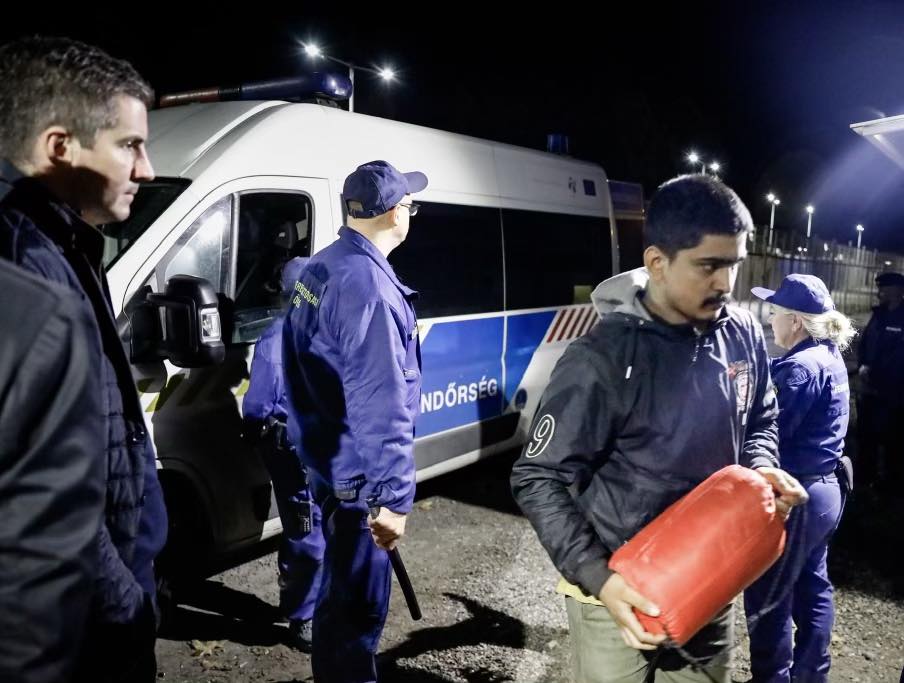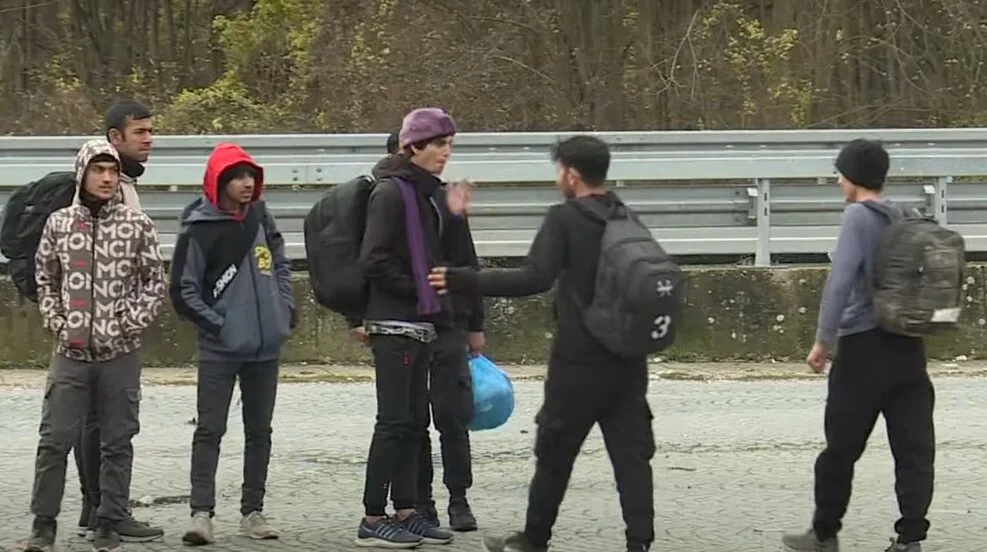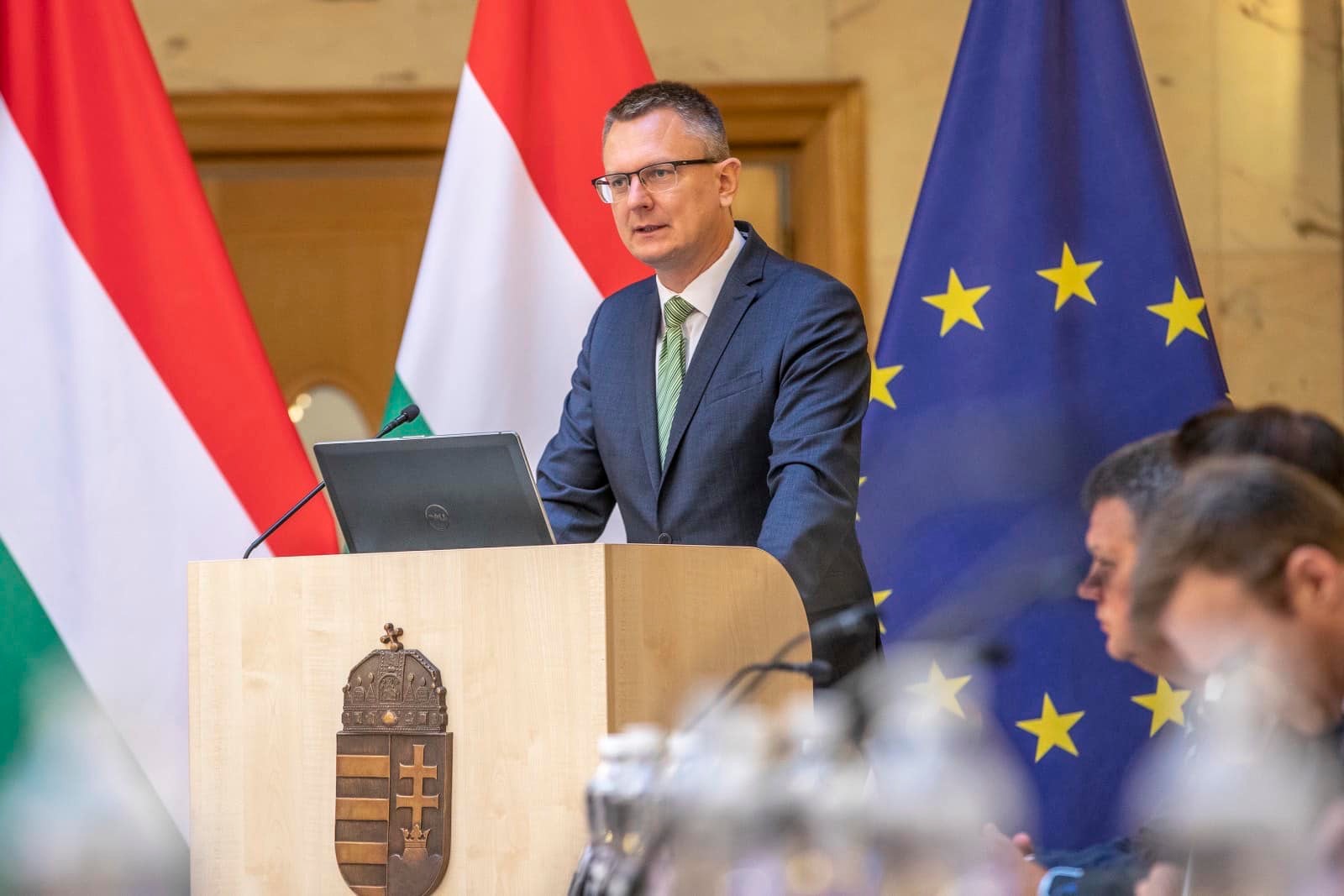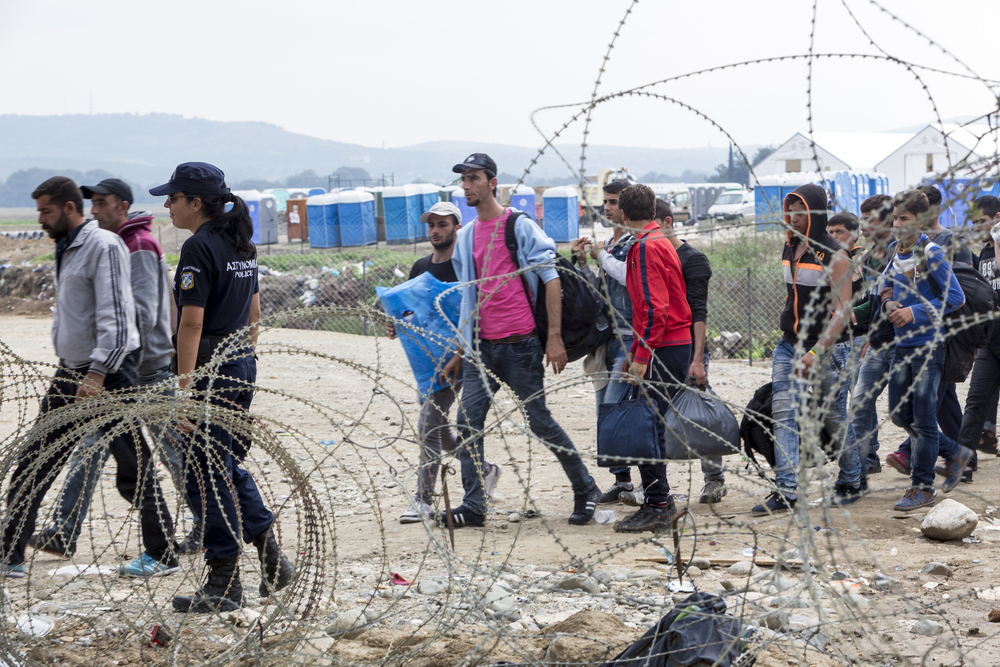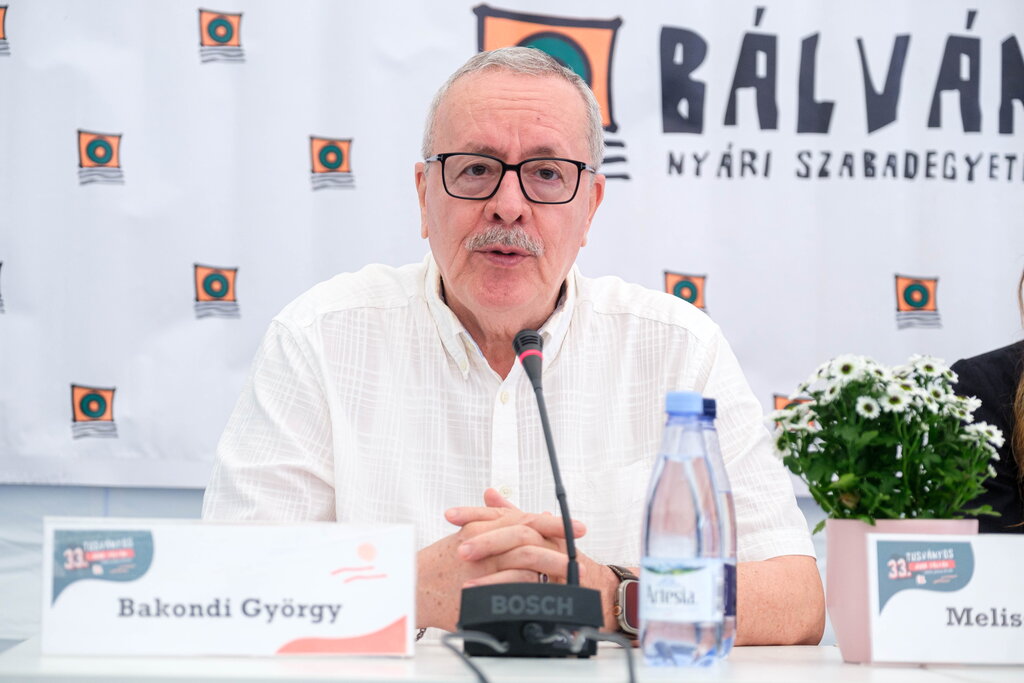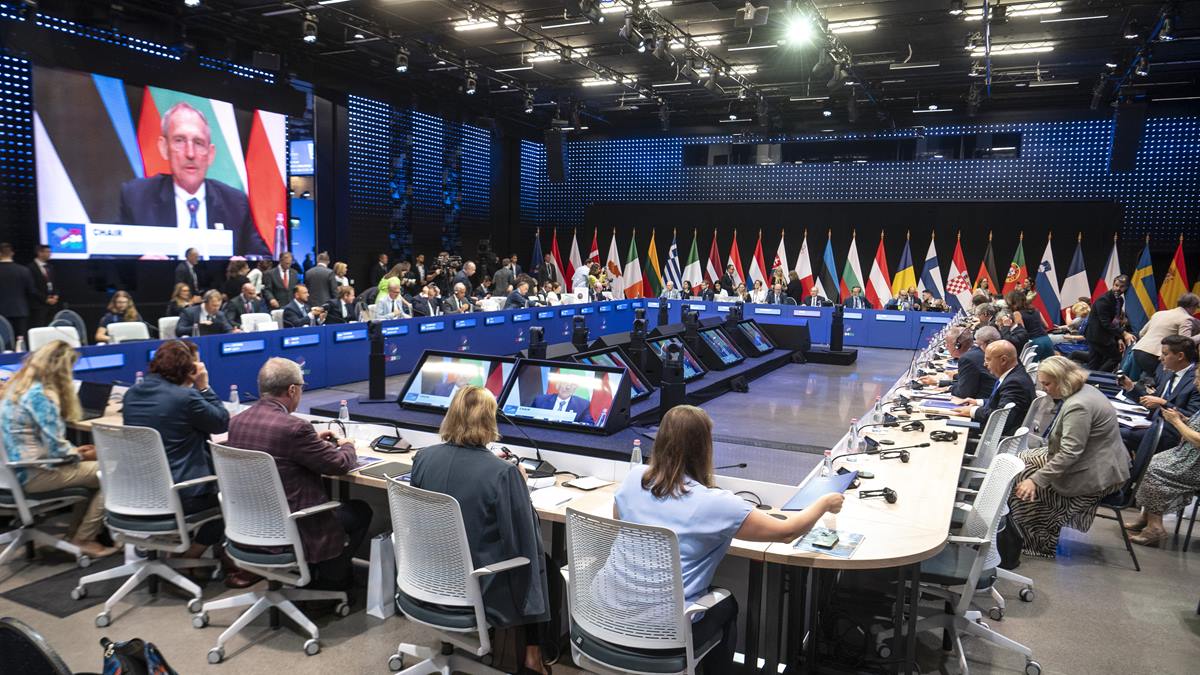The head of the Prime Minister’s Office, Gergely Gulyás, slammed a ruling by the Court of Justice of the European Union against Hungary over its migration policy as “disgraceful, intolerable and outrageous”, saying it showed that the court could no longer be counted on to issue impartial decisions in legal disputes.
EU ruling against Hungary concerning migration pact “disgraceful, intolerable and outrageous”
The head of the Prime Minister’s Office, Gergely Gulyás, slammed a ruling by the Court of Justice of the European Union against Hungary over its migration policy as “disgraceful, intolerable and outrageous”, saying it showed that the court could no longer be counted on to issue impartial decisions in legal disputes.
He said the government wanted to reach an agreement with the EC as soon as possible, but if the agreement resulted in the protection of the EU’s external borders being rendered unsustainable, Hungary would continue to “protect its territory by every means possible”.
“But we won’t be able to guarantee that hundreds of thousands of migrants won’t be making their way to Austria and Germany via the southern border,” he added.
Hungary, Gulyás said, had honoured its commitments stemming from the Schengen treaty by having spent some two billion euros of its own resources on protecting Europe’s borders, and it was “unacceptable” that the country was being fined for this.
On another subject, János Bóka, Hungary’s minister for EU affairs, said the heads of the European Parliament European affairs committees will hold a meeting in Parliament on Monday, marking the end of the first phase of Hungary’s EU presidency.
The security and defence policy ad hoc working group has been put on a permanent footing and an agreement in principle has been reached on the 2025 EU budget, Boka said, listing the presidency’s achievements so far.
The next summit meeting of the European Political Community will be held in Budapest on Nov 7, with an informal meeting of the European Council to be held the next day, he added.
Five informal meetings so far
So far, five EU bodies have held informal meetings in Brussels and Budapest, the minister said, adding that these covered issues such as competitiveness, artificial intelligence, electric car manufacturing, preparations form the next climate summit, water management, cross-border pollution, the circular economy, challenges related to the energy framework by 2030 and the potentials of geothermal energy.
EU ministers also reviewed the political priorities in the areas of justice and home affairs, Boka said, noting that the aim was to adopt a five-year document in this area. The meetings in question also touched on ensuring more effective data access for border control and asylum organisations, he said.
Meanwhile, EU health ministers discussed cardiovascular diseases and organ donation, Boka said.
Agriculture ministers talked about the long-term viability of rural areas, finance ministers discussed the EC’s calls for excessive deficit procedures, and labour and social affairs ministers debated the challenges of labour shortages and the integration of those with disabilities into the labour market, among other things, he added.
During this time, the committee in charge of immigration, borders and asylum visited Szeged and Hungary’s southern border, Boka said, adding that EU defence policy directors and the directors-general in charge of cohesion policy also held meetings in Hungary.
Answering a question, Gulyás said it was only thanks to the high level of crude reserves that there was no acute supply problem due to Kyiv’s action to “turn off the tap”. He said Hungary expected “different and more” from EU institutions and the European Commission, adding that it was “unacceptable” that the EU was not standing by a “blackmailed” member state.
Gulyás also suggested that it was “not beyond the realm of logic” that Ukraine may have negotiated with the EU before turning off the taps.
He called on Ukraine to “restore the situation whereby we can access Russian oil”, adding that Europe’s economic interests were also bound up with having access to cheap Russian raw materials.
The minister said many European states had been “hypocritical”, buying Russian oil indirectly via countries acting as an intermediary.
Meanwhile, Boka, answering a question, said Hungary awaited an EC decision on starting consultation with Ukraine and hopefully this would happen soon. Further steps by Hungary would depend on this decision, he added.
Gulyás noted that Hungarian oil and gas concern MOL purchased crude based on long-term contracts. Shortfalls due to Ukrainian measures, he said, would not cause a disruption to supplies until September, even if no other source is found as a replacement. But in the case of a replacement, a price increase may ensue, he said.
Since taking office in 2010, the government has expanded the energy transmission infrastructure with the aim of improving supply security, he said, noting that Hungary is now connected to all neighbouring countries by pipelines, bar Slovenia.
Asked why Ukraine was blackmailing Hungary, Gulyás said the neighbouring country wanted Hungary to abandon its pro-peace policy.
Asked if MOL could substitute the lost oil volumes with shipments form another one of its partners, Gulyás said: “The problem is about whether supply security can be guaranteed. And if it can, then the question is whether it can be gauranteed at the same price.”
The solution was “extremely simple”, Boka added, stressing that Ukraine had to meet its obligations stemming form international law.
Concerning the transit of Russian crude through Ukraine, Gulyás said Hungary had already done a lot to increase its storage capacities before the war, noting that it had built and repurchased storage facilities, making it one of the EU countries with the highest oil reserves. “The system works for now; we’re prepared for anything,” he said.
Asked about the CJEU’s ruling in connection with Hungary’s migration policy, Gulyás said Hungary was not in a position not to comply with the ruling. “Either we pay, or they’ll charge our account one million euros each day,” he said.
Gulyás said Hungary hade rightfully protested the ruling, insisting that Austria and Germany should be against the decision the most since most of the illegal migrants arriving in Hungary had travelled on to those countries.
Boka said neither Hungary nor Europe had an interest in carrying out the ruling, so Hungary was intitiating a consultation with the EC on the decision’s implementation, which will start in September.
“The Hungarian government’s position is fundamentally determined by the will of the voters and the provisions of the constitution,” he said, adding that Hungary was protecting its own borders so that it could also protect Europe.
He said that if Hungary complied with the ruling, it would result in a repeat of the situation seen in 2015.
Asked if Hungary would help Greece build a border fence, Gulyás said would be “happy to pass on the tried and tested techniques to anyone”. He also said the government was capable of ensuring that the fine would not have to be paid by taxpayers.
In response to another question, he said one of the special taxes had spefically been left in effect to finance the fine.
Meanwhile, Gulyás said the EU’s migration pact had “failed before it entered into effect”, even though some of its components could be considered “progress”. Among these, he said, was the provision allowing member states to keep migrants in enclosed camps for 12 weeks, adding that this was the same practice Hungary had followed with the use of transit zones.
Gulyás added, at the same time, that the migrant redistribution mechanism was “unsustainable” because it was based on the presumption that migrants who are granted asylum stay in the country they are redistributed to even though EU law allows them to go to other member states.
He said Hungary would not take in migrants from other member states even if it had to pay a fine instead.
Asked about the amount of Western aid being given to Ukraine, Gulyás said he “would put that aside until the US presidential election, after which we’ll see if there will be peace next year”.
He also said the government had condemned Russia’s aggression in Ukraine on multiple occasions, adding that at complete withdrawal of Russian troops from Ukraine’s territory was “not realistic”.
Asked about a loan Hungary recently took from China, Gulyás said it was not meant to make up for EU resources, adding that the government believed that free trade and balanced economic relations, including credit, were good for the world and Hungary. He said that though it was a large sum, the 1 billion euro loan was not considered significant when it came to the state’s finances.
Gulyás said there would always be credit transactions that would be advantageous for Hungary. If Hungary can take out a development loan at favorable interest rates, then “it is necessary and justified”, he said, especially if it was used to finance investments that generated the money needed to repay the loan.
Noting that the Patriots for Europe have not been assigned posts of president or vice president in EP committees, Gulyás said the body “totally lacks a European political culture”, adding that it would be inconceivable in Hungary for parliamentary committee positions customarily held by an opposition MP to be withheld from them.
He said there was a customary and objective method to calculate which group was entitled to which position and this had been ignored in the EP this time round.
Meanwhile, referring to the partial boycott of Hungary’s presidency, Boka said the European Commission had been established in the first place to cooperate with member states, and its role wasn’t to choose which member states to cooperate with politically. But the level of the commission’s representation would not affect the presidency’s activities or its success, he said.
Regarding the EU informal foreign affairs council meeting to be held in Brussels instead of Budapest, he said 13 member states insisted on Budapest, five opposed, while eight did not hold a firm position.
On the topic of airport delays, Gulyás said airlines were assembling “an impossible schedule” in order to maximise profits, and this situation would endure until they were forced to pay fines of ten or even hundreds of millions of forints for each delay. “More than a dozen procedures are under way,” he said, adding that this was “still not enough”.
On the subject of the national budget, Gulyás said the US presidential election would influence the budget situation so next year’s budget would be completed in November. The deficit is planned to be around 4.5 percent this year, 3.7 percent next year, and 2.9 percent in 2026, “a more ambitious” target than European Commission expectations. The excessive deficit procedure would not have any palpable effect if the targets were achieved, he added.
Read also:



